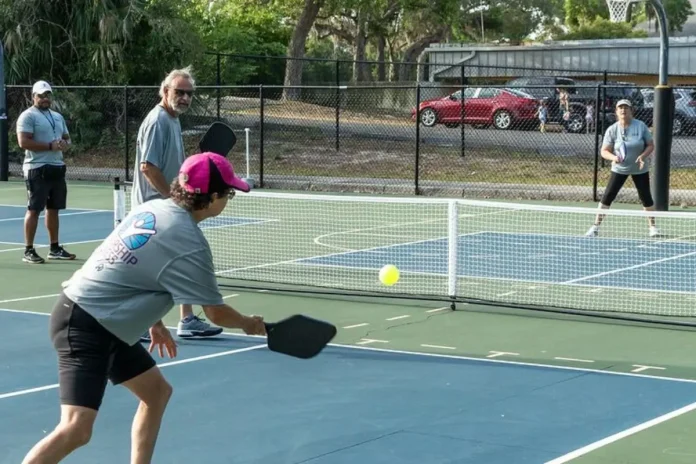Pickleball’s Surprising Benefits for Cancer Survivors: Researchers at Moffitt Cancer Center are studying how pickleball may benefit cancer survivors by increasing physical activity, a key factor in lowering cancer risks, according to the National Cancer Institute. The study, conducted in Palm Harbor, Florida, explored whether survivors would stick with the sport and experience positive health effects.
Pickleball as a Lifeline for Cancer Survivors
For Jacie Rowe, 77, pickleball arrived at the perfect time in her life. After moving to Clearwater, Florida, in 2019, she was diagnosed with multiple myeloma, a type of blood cancer. Following chemotherapy, Rowe found herself in isolation due to the COVID-19 pandemic. That changed when she joined Moffitt’s pickleball study, giving her a new community and an active lifestyle.
“I’ve always been active,” Rowe said. “I’ve always been, you know, positive.”
She credits pickleball with keeping her young and providing a sense of camaraderie with others facing similar challenges.
Inside the Pickleball Study
The study, a collaboration between Moffitt Cancer Center and the YMCA of the Suncoast, involved 23 participants, 18 of whom were cancer survivors. Under the guidance of a certified pickleball coach, participants learned and played the sport while researchers assessed retention rates and overall feasibility of expanding the program.
Dr. Nathan Parker, a researcher in Moffitt’s Department of Health Outcomes and Behavior, was initially surprised by the role pickleball could play in cancer research.
“If you’d asked me five years ago, would pickleball be part of my day-to-day work as a cancer researcher? I would have told you to get lost,” Parker said. “But it’s been really cool to see the impact that this program can have.”
The Results and Future of the Study
One of the key findings was that participants stuck with the program and became dedicated players.
“They stuck through,” Parker said. “It seemed like they became, you know, pickleball addicts. Like most people seem to when they start playing the game.”
Since cancer survivors often struggle to maintain physical activity while focusing on treatment and recovery, the study highlights how pickleball may provide an engaging, accessible form of exercise.
“It looks really promising for the benefits of pickleball and cancer survivorship,” Parker added.
Expanding the Research
Following the success of this study, Moffitt Cancer Center hopes to conduct a larger randomized trial to further examine the benefits of pickleball for cancer survivors.
For Rowe, the impact is already clear.
“You have friends, you come, and you meet the same people, and, you know, all these people have the same kind of issues you do,” she said. “And so it’s really very helpful. I miss it.”
News in Brief: Pickleball’s Surprising Benefits for Cancer Survivors
Moffitt Cancer Center is studying how pickleball benefits cancer survivors. A Palm Harbor study with 23 participants, 18 of whom were cancer survivors, found that players stayed engaged with the sport. Researchers now hope to expand the study to a larger trial, seeing potential benefits for physical activity and survivorship.
ALSO READ: Support Families and Play Pickleball: Serving Hope Pickleball Tournament in Orlando

